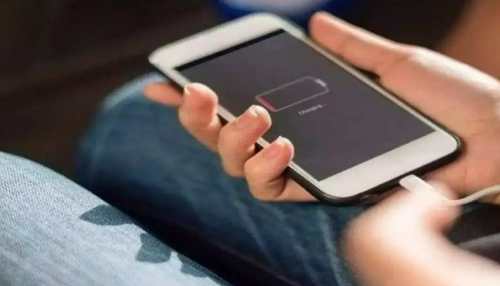- News>
- Technology
Common charger for iPhone, OnePlus, Samsung and all? Here`s what the govt plans to do

Each participant in the meeting shared their unique viewpoints and assessed how moving to a standard charger would affect the market, consumers, and the environment.
Highlights
- Adoption of a common charger in the country may occur in order to address e-waste issues.
- The decision to form an expert team was made following an hour-long meeting with stakeholders presided over by Consumer Affairs Secretary Rohit Kumar Singh.
New Delhi: The Indian government intends to implement the EU's common charging policy. In other words, the country may soon implement a policy requiring all mobile phones (regardless of brand) and other portable electronic devices to use the same charger. According to a PTI report, the Indian government will soon form expert groups to investigate the adoption of universal chargers for mobile phones and other portable electronic devices, a policy that has already been approved by the EU.
Adoption of a common charger in the country may occur in order to address e-waste issues and provide relief to consumers. The decision to form an expert team was made following an hour-long meeting with stakeholders presided over by Consumer Affairs Secretary Rohit Kumar Singh.
According to PTI, Electronics Products Innovation Consortium (EPIC) Foundation Chairman and HCL Founder Ajai Chowdhury, Manufacturers' Association of Information Technology (MAIT) President Rajkumar Rishi, India Cellular and Electronics Association (ICEA) Chairman Pankaj Mohindroo, Consumer Electronics and Appliances Manufacturers Association (CEAMA) President Eric Braganza, and Indian Electrical and Electronics Manufacturers' Association (IEEMA) President Eric Braganza attended the meeting.
Singh stated at the end of the meeting that the common charger policy is a "complex issue." "India has a position in charger manufacturing." Before making a final decision, we need to understand everyone's point of view — the industry, the users, the manufacturers, and the environment," he added.
Each participant in the meeting shared their unique viewpoints and assessed how moving to a standard charger would affect the market, consumers, and the environment. Given that India is a charger manufacturer and exporter to numerous nations, the majority of stakeholders agreed that it is necessary to assess the impact of the common charger policy. Additionally, it was stated that if the policy were to be implemented, it shouldn't be imposed on them because many Indians use low-cost feature phones, and switching to a standard charger could raise the cost of these phones.
Singh added that India might initially consider switching to two different types of chargers: USB Type-C and a few others. Now that the situation is more complicated, Singh stated, "we have decided to form expert groups to study and submit recommendations within two months." He clarified that distinct expert groups will be established to investigate the charging ports used by three different categories of electronic devices: mobile and feature phones, laptops and tablets, and wearable electronics.
In June, lawmakers from the European Union (EU) came to an agreement requiring all upcoming smartphones sold on the market to have a universal USB-C port. Simply put, every phone that enters the market after the fall of 2024, regardless of brand, must have a USB-C port. The law also holds true for Apple iPhones, which at the moment have a lightning port. Currently, reports indicate that Apple is developing iPhones with USB-C ports. We can anticipate USB-C replacing the lightning port on iPhones in 2023 or 2024 given that some nations are considering implementing the common charger policy.
